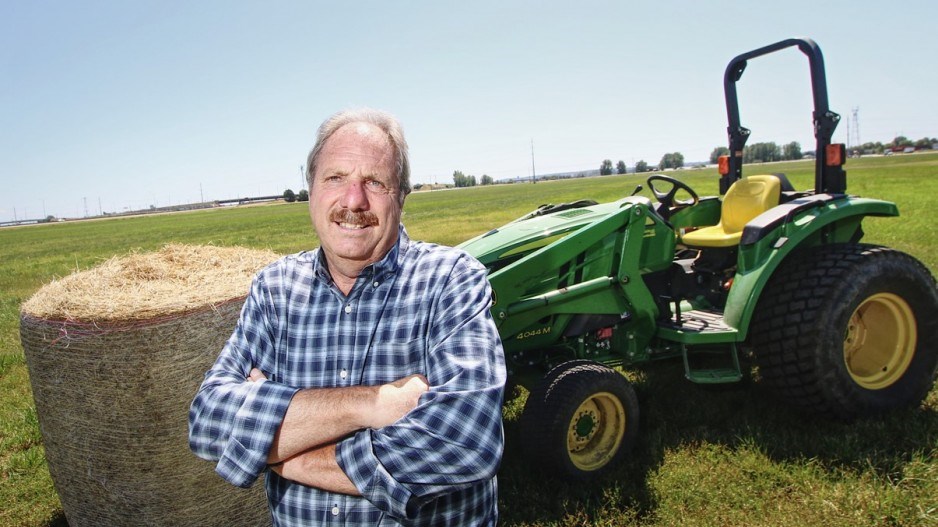Low Fraser River water levels are causing stress for farmers who rely on that river to irrigate crops.
The problem, W&A Farms owner and Delta farmer Bill Zylmans told BIV, is that when water levels are low, salty Pacific Ocean water flows into the Fraser River, and into irrigation ducts.
Ocean water, he said, can kill or damage crops.
"That's the biggest detriment, and the biggest conversation that's going on in the farming community right now," said Zylmans who spent decades farming in Richmond but has sold that acreage.
The longtime potato farmer now grows hay on 88 acres at 5900 34B Street in Delta, he said.
"Whether you're growing potatoes or grain or vegetables or whatever else, the important thing is the quality of irrigation water," he said.
Metro Vancouver received some rain last week but the summer has been hot and dry enough to prompt the regional Metro Vancouver government to move the region to Stage 2 water restrictions on Aug. 4 (Friday).
That means that homeowners will not be able to water their lawns.
Zylmans is thankful that farmers will still be able to irrigate crops.
He said B.C. had a warm May, prompting the snowpack on mountains to melt earlier than normal, and flow out to the Salish Sea.
"When the Fraser River slows down, it gives the ocean time to push back further up into the channels," he explained. "So the salt wedge, with the tides, starts to come further and further up the Fraser River."
When snowpack runoff is strong, the fresh water can push into, and start to mix with ocean water at the river's mouth, he said. The current situation is that ocean water is making its way much further inland.
"The salt wedge is is getting a lot closer to the Alex Fraser Bridge," he said. "The intakes for irrigation for Delta are quite a bit [west of that,] as they're around Tilbury Island. When the tides are wrong, then you have got to be really careful about what kind of water you are bringing in because once you bring saltwater in, well that's not good for the crops at all."
Zylmans plans to have two harvests of hay each year. This year, his first harvest was in early June and it generated the equivalent of about 6,000 hay bales. The second harvest he wrapped up in mid-July, and it only generated about 1,200 bales, when he was originally aiming to produce about 5,000 bales. He blames the poor second crop on hot, dry weather.
"The first one was a normal crop," he said. "Then the yields dropped so significantly."



